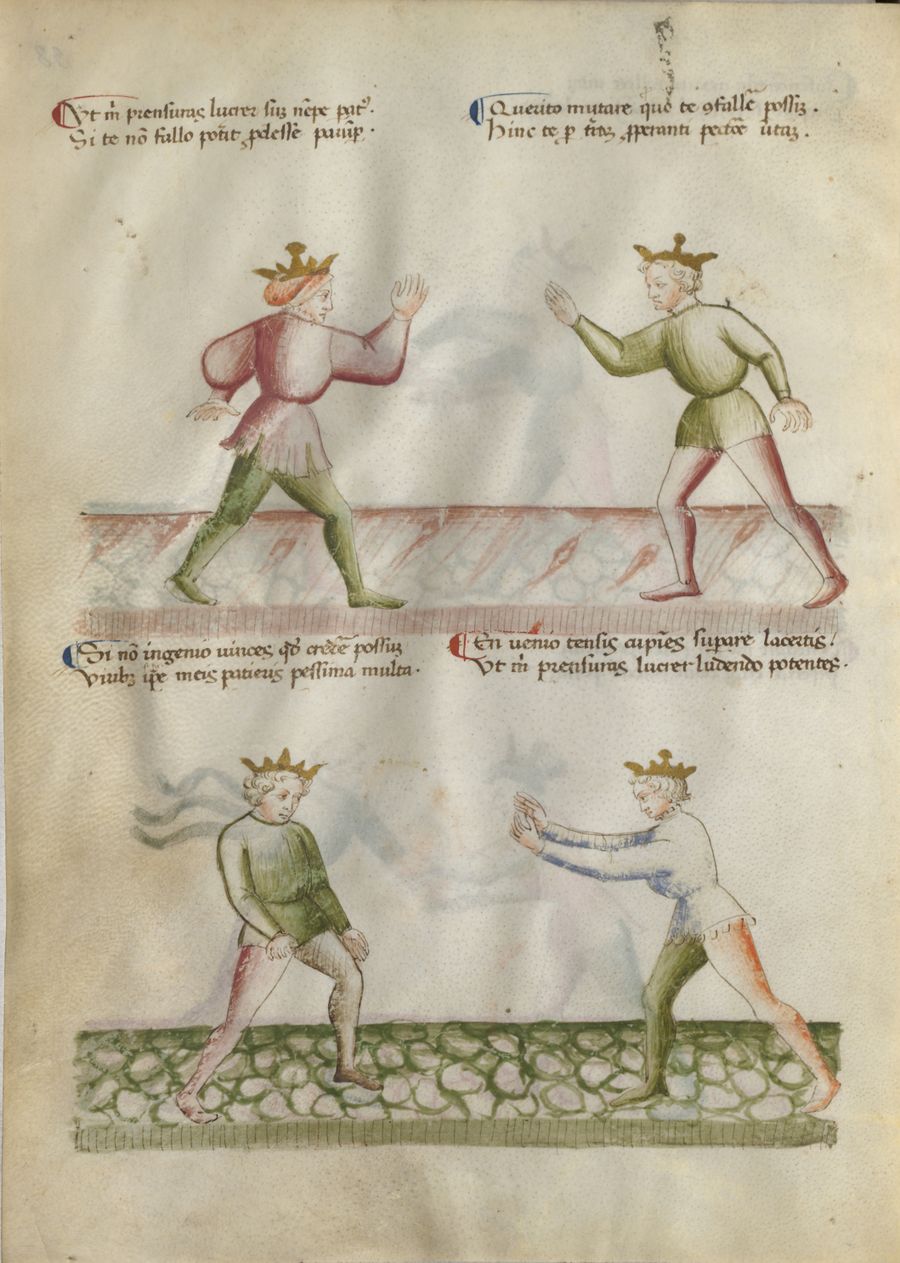|
|
You are not currently logged in. Are you accessing the unsecure (http) portal? Click here to switch to the secure portal. |
Difference between revisions of "User:Kendra Brown/Florius/English MS Latin 11269 38v"
| Line 34: | Line 34: | ||
</noinclude> | </noinclude> | ||
<poem> | <poem> | ||
| − | {{par|r}} I am certainly prepared to gain graspings for myself. | + | {{par|r}} I am certainly prepared to gain graspings for myself.<ref>This line and the last line of the 4th couplet share an indentical fragment in both the Latin and the Italian; however, it is not possible to render the two identically in fluent English.</ref> |
If I don't deceive you, it can be useful for a short time | If I don't deceive you, it can be useful for a short time | ||
Revision as of 18:49, 14 May 2024
Latin 38v
¶ Vt mihi prensuras lucrer, sum nempe paratus.
Si te non fallo poterit prodesse parumper.
- ¶ Querito mutare[1] quo te confallere possim.
Hinc te per terram properanti pectore vertam.
¶ Si non ingenio vinces quidem credere possum
viribus ipse[2] meis patieris pessima multa.
- ¶ En venio tensis cupiens superare lacertis.[3]
Ut mihi prensuras lucrer ludendo potentes.
Italian
|
I am prepared to gain the holds; |
[4a-a] Per guadagnar le prese e son aparichiato, |
|
I seek to make a change to the fight, |
[4a-b] De pugna mutacion cercho de'fare |
|
If you don't defeat me with cunning, I believe |
[4a-c] Se per inçegno non me vinceraii zo creço |
|
I come with my arms well-extended like this |
[4a-d] Cum li braci vegno acusi ben destese |
English 38v
¶ I am certainly prepared to gain graspings for myself.[4]
If I don't deceive you, it can be useful for a short time
¶ I seek to change where I would be able to deceive you completely.
From here, I will turn you through the ground by the speeding chest.
¶ If you don't defeat [me] with a clever trick, I can indeed believe
[that] you yourself will suffer many worse things due to my strength.
¶ Behold, I come, desiring to conquer with extended arms;
I gain powerful graspings for myself by playing.
- ↑ Added later: "pro".
- ↑ Added later: "scilicet tu".
- ↑ It looks like the period maybe was changed to a slash/comma.
- ↑ This line and the last line of the 4th couplet share an indentical fragment in both the Latin and the Italian; however, it is not possible to render the two identically in fluent English.

